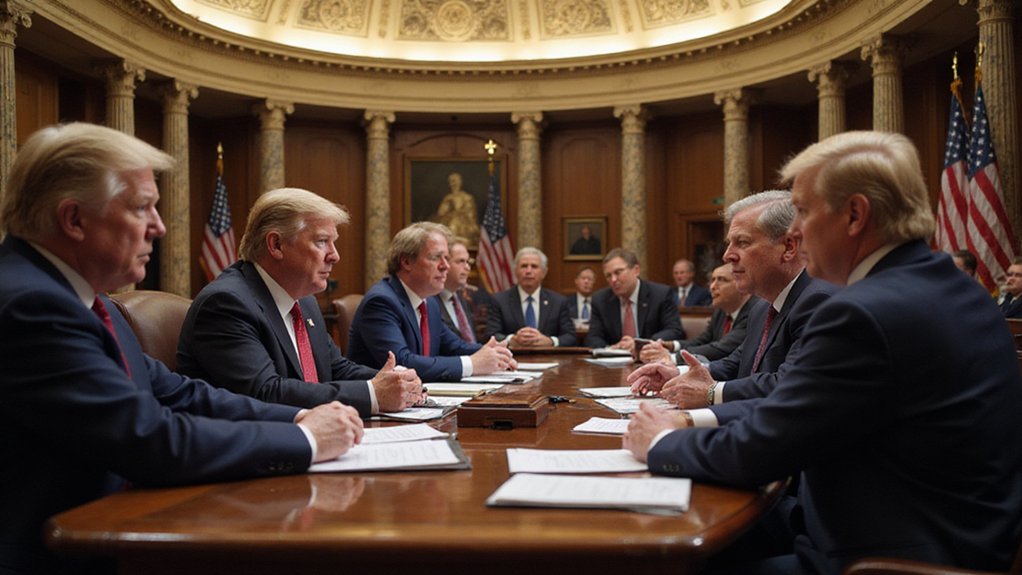How does a legislative body that once struggled to grasp the fundamental mechanics of social media suddenly find itself crafting nuanced regulatory frameworks for algorithmic currency stabilization?
The Senate’s 68-30 passage of the GENIUS Act on June 18, 2025, suggests Washington has finally awakened to the reality that digital assets aren’t merely speculative playthings for basement-dwelling day traders.
The legislation—whose acronym “Guiding and Establishing National Innovation for U.S. Stablecoins” feels almost aggressively optimistic—represents the first thorough federal regulatory framework for stablecoins, those curious cryptocurrency creatures designed to maintain stable value against the dollar.
With the stablecoin market currently valued at $250 billion and Treasury projections suggesting growth to nearly $2 trillion within a decade, the stakes have apparently grown too large for continued regulatory procrastination.
The Act’s provisions read like a financial compliance officer’s fever dream: mandatory full reserve backing with safe assets, monthly audits ensuring transparency, and strict adherence to anti-money laundering requirements. The Treasury will actively monitor suspicious transactions to identify potential illicit activities within the stablecoin ecosystem.
Perhaps most tellingly, the legislation requires Congressional members and executive officials to disclose stablecoin holdings exceeding $5,000—a provision that suggests lawmakers have learned something about potential conflicts of interest (though one wonders why the threshold isn’t lower).
Bipartisan support proved surprisingly robust despite Democratic concerns about cryptocurrency ties to Trump family businesses and foreign investment controversies. The bill’s passage notably came despite two Republicans joining the opposition, highlighting some intraparty divisions on cryptocurrency regulation.
The crypto industry’s substantial investments in the 2024 election cycle appear to have yielded tangible returns, transforming what was once regulatory hostility into grudging acceptance of digital asset legitimacy. Platforms specializing in AI-powered trading are already positioning themselves to leverage the new regulatory clarity for enhanced automated cryptocurrency strategies.
Senator Elizabeth Warren’s criticism that the bill inadequately addresses political bribery risks through stablecoins highlights lingering skepticism about whether Congress truly comprehends the instruments it’s regulating.
The legislation now advances to the Republican-controlled House, where passage seems likely given the party’s generally crypto-friendly stance.
The GENIUS Act ultimately represents a pragmatic acknowledgment that stablecoins have evolved beyond regulatory wishful thinking.
Whether this framework proves sufficiently robust to manage a potentially $2 trillion market remains an open question—though given Congress’s track record with financial innovation, cautious optimism seems the appropriate response.









